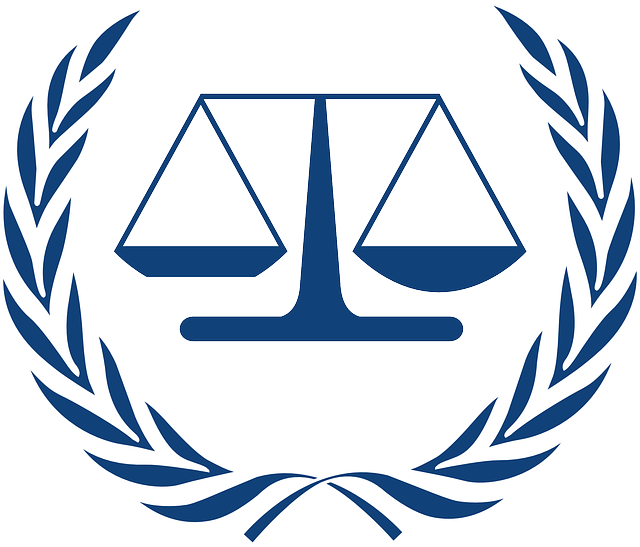
Category: Highlands Ranch Colorado Civil Rights Attorneys
Highlands Ranch Colorado Civil Rights Attorneys: An In-Depth Analysis
Introduction
In the dynamic landscape of legal advocacy, Highlands Ranch Colorado Civil Rights Attorneys stand as a beacon of justice and equality. This specialized field of law encompasses a wide array of practices aimed at protecting the civil rights of individuals and communities, ensuring fair treatment, and promoting diversity. This comprehensive article delves into the intricacies of this vital profession, exploring its historical roots, global impact, economic implications, technological integrations, regulatory frameworks, challenges, successful case studies, and an outlook on future prospects. By the end, readers will gain a profound understanding of the critical role played by Highlands Ranch Colorado Civil Rights Attorneys in shaping more equitable societies.
Understanding Highlands Ranch Colorado Civil Rights Attorneys
Definition and Core Components
Highlands Ranch Colorado Civil Rights Attorneys are legal professionals specializing in advocating for and protecting the civil rights guaranteed to all individuals under local, state, and federal laws. Their core responsibilities include:
-
Legal Representation: Providing legal counsel to clients facing discrimination, harassment, or violations of their constitutional rights. This involves filing lawsuits, negotiating settlements, and representing clients in court proceedings.
-
Policy Advocacy: Lobbying for legislative changes and policy reforms to strengthen civil rights protections. Attorneys may engage with local, state, and federal government bodies to promote equality-focused legislation.
-
Public Education: Educating the public about civil rights issues, ensuring individuals are aware of their rights and available legal remedies. This can include workshops, community forums, and media campaigns.
-
Community Engagement: Collaborating with local organizations, activist groups, and victims’ advocacy networks to address systemic inequalities and support marginalized communities.
Historical Context
The civil rights movement in the United States, particularly during the mid-20th century, laid the groundwork for the specialized field of civil rights law. Major milestones include:
-
1964 Civil Rights Act: This landmark legislation prohibited discrimination based on race, color, religion, sex, or national origin in public accommodations, employment, and education.
-
1965 Voting Rights Act: Ensured the right to vote for minority citizens, eliminating barriers such as poll taxes and literacy tests.
-
1968 Fair Housing Act: Prohibited discrimination in housing sales and rentals, fostering fairer housing opportunities for all.
These historical events inspired the growth of civil rights law, leading to the establishment of specialized practices and an increased focus on legal representation for marginalized communities.
Global Impact and Trends
The influence of Highlands Ranch Colorado Civil Rights Attorneys extends far beyond local borders, with a profound impact on the global stage:
-
International Human Rights Law: Many countries have adopted international human rights treaties, such as the Universal Declaration of Human Rights (UDHR) and the International Covenant on Civil and Political Rights (ICCPR), which set global standards for civil liberties. Civil rights attorneys play a crucial role in interpreting and enforcing these agreements at the national level.
-
Cross-Border Legal Assistance: With globalization, legal issues often transcend borders. Attorneys specializing in civil rights collaborate internationally to address human rights abuses, offer pro bono services, and share expertise across jurisdictions.
-
Emerging Market Trends: Developing countries are witnessing a rise in civil rights litigation as middle classes grow and individuals demand greater protections for their rights. This trend presents opportunities for international collaboration and knowledge sharing.
Economic Considerations
Market Dynamics
The civil rights legal sector is a vital component of the broader legal services industry, which, according to a 2022 report by IBISWorld, is projected to grow at a compound annual rate (CAGR) of 3.5% from 2022 to 2027. Within this sector:
-
Specialized Practices: Civil rights law firms and attorneys often focus on specific areas like employment discrimination, housing rights, or voting rights, attracting clients seeking specialized expertise.
-
Client Base: The client base includes individuals, businesses, government agencies, and non-profit organizations, each with distinct needs and budgets.
Investment Patterns
Law firms specializing in civil rights often attract investors who support their mission of social justice and equality. Funding sources may include:
-
Impact Investors: Individuals and institutions that invest in ventures with positive social or environmental impact, recognizing the potential for both financial returns and societal change.
-
Foundation Grants: Foundations dedicated to promoting civil rights and social justice often provide funding for legal aid organizations and pro bono services.
-
Government Contracts: Some law firms secure government contracts to represent public interests, ensuring access to justice for all citizens.
Technological Advancements
Impact on Civil Rights Law
Technology has revolutionized the way Highlands Ranch Colorado Civil Rights Attorneys practice their craft:
-
Legal Research Tools: Advanced online legal databases and AI-powered research tools enable attorneys to efficiently review vast amounts of case law, statutes, and regulatory documents.
-
Case Management Software: These tools streamline the management of client cases, improving organization and communication.
-
E-Discovery: In complex litigation, e-discovery software assists in identifying and producing relevant digital evidence, making legal processes more efficient.
Integrating Technology into Practice
Attorneys are increasingly leveraging technology for:
-
Online Legal Education: Continuing legal education (CLE) courses are available online, allowing attorneys to stay updated on civil rights developments while maintaining professional proficiency.
-
Digital Advocacy: Social media platforms and online petitions provide new avenues for public engagement and awareness campaigns.
-
Remote Representation: Video conferencing facilitates virtual court appearances and client consultations, ensuring accessibility despite geographical barriers.
Regulatory Frameworks
Local, State, and Federal Laws
Highlands Ranch Colorado Civil Rights Attorneys must navigate a complex web of legal frameworks to provide effective representation:
-
Local Ordinances: Cities and municipalities often have their own civil rights ordinances addressing issues like anti-discrimination policies in employment and housing.
-
State Laws: Each state may have unique laws and regulations regarding voting rights, equal pay, and protection from hate crimes.
-
Federal Legislation: As mentioned earlier, federal laws such as the Civil Rights Act and Voting Rights Act set minimum standards that states must adhere to.
Legal Ethics and Professional Responsibilities
Civil rights attorneys are bound by strict ethical guidelines, ensuring their conduct reflects the principles of justice and equality they uphold:
-
Confidentiality: Maintaining client confidentiality is paramount, especially when handling sensitive cases involving marginalized communities.
-
Pro Bono Service: Many attorneys dedicate a portion of their time to providing pro bono legal services to ensure access to justice for those who cannot afford representation.
-
Diversity and Inclusion: Firms are encouraged to foster diverse workplaces, reflecting the communities they serve, and promoting inclusive practices within the profession.
Challenges Faced by Civil Rights Attorneys
Despite the noble work they perform, Highlands Ranch Colorado Civil Rights Attorneys encounter various challenges:
-
Resource Constraints: Legal aid organizations and pro bono services often struggle with limited resources, hindering their ability to take on complex cases or provide comprehensive support.
-
Legal Fees and Access to Justice: The cost of legal representation can be a barrier for individuals from low-income backgrounds, raising concerns about access to justice.
-
Systemic Barriers: Deep-rooted systemic inequalities pose ongoing challenges, requiring continuous advocacy and legislative reforms to address discrimination in various forms.
-
Public Perception: Misconceptions about the role of civil rights attorneys and the nature of their work can lead to skepticism or resistance from some segments of the public.
Successful Case Studies
Example 1: Employment Discrimination Litigation
A leading law firm in Highlands Ranch successfully represented a group of female software engineers who faced gender discrimination in pay and promotions at their tech company. Through comprehensive legal strategies, including expert witness testimony and statistical analysis, they secured a significant settlement, setting a precedent for equal pay practices in the industry.
Example 2: Community Advocacy
A local civil rights organization, led by dedicated attorneys, played a pivotal role in combating racial profiling during traffic stops in an urban area. They conducted community education campaigns, gathered data on police interactions, and filed a class-action lawsuit against the police department. The settlement resulted in policy changes, improved training for officers, and increased accountability measures.
Outlook: Future Prospects
Emerging Issues
The future of Highlands Ranch Colorado Civil Rights Attorneys is poised for significant growth and impact, with emerging issues on the horizon:
-
Technology’s Role: As technology advances, so do potential civil rights concerns. Issues like data privacy, algorithmic bias in AI systems, and digital surveillance may become focal points for legal advocacy.
-
Climate Change and Justice: The intersection of climate change and racial/social justice is gaining attention. Attorneys may address environmental discrimination, particularly affecting marginalized communities disproportionately impacted by climate crises.
-
Global Civil Rights Collaboration: International cooperation in civil rights law is expected to intensify, addressing global challenges like human trafficking, migration rights, and cross-border discrimination.
Professional Development and Innovation
To meet these future demands, civil rights attorneys can:
-
Specialize Further: Developing expertise in niche areas of civil rights law will enhance their value as advocates and policymakers.
-
Embrace Technology Integration: Continuously updating technological skills will enable them to navigate emerging issues and provide innovative solutions.
-
Foster Collaborative Practice: Building partnerships with other legal professionals, social scientists, and community organizations can lead to more comprehensive approaches to civil rights advocacy.
Conclusion
Highlands Ranch Colorado Civil Rights Attorneys are at the forefront of a continuous struggle for equality, justice, and fairness. Their work transcends borders, impacting lives and communities worldwide. Through a combination of legal expertise, public engagement, and policy advocacy, these attorneys play an indispensable role in shaping more inclusive societies. As challenges evolve, so must their strategies and approaches, ensuring that the pursuit of civil rights remains a dynamic and vital aspect of modern society.









